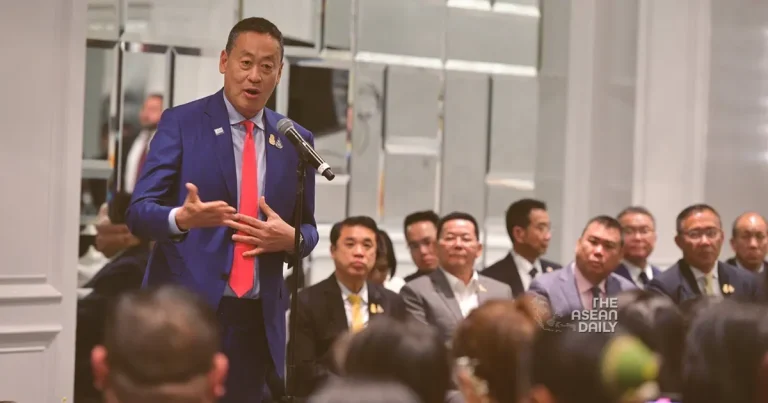13-12-2023 (BANGKOK) In the bustling city of Bangkok, where the hopes of many rest on the promises of Prime Minister Srettha Thavisin, signs of skepticism are emerging among lower-income citizens who were optimistic about a positive change in their lives under the new leadership.
Rattana Mapaen, a 63-year-old factory worker struggling to support her household of six, including a bedridden 93-year-old mother and five children, expressed her disappointment. While anticipating improvements in their lives, especially with the proposed 10,000 baht (US$280) one-time handout promised by the Srettha government, she feels let down more than three months into his tenure.
The flagship cash disbursement policy, dubbed the “digital wallet” initiative, aims to distribute funds to 50 million eligible Thais, costing the government a total of 500 billion baht. Despite the administration’s claims that this policy will stimulate spending and boost economic activity, some economists are skeptical, warning of potential inflation and a widening fiscal deficit.
Dr Kirida Phaopichitr from the Thailand Development Research Institute cautioned that the multiplier effect of cash transfers might not be as high as the government hopes, emphasizing the need for a cautious approach.
Official figures reveal that nearly 5.4% of Thailand’s population, approximately 4 million people, are living in poverty. Additionally, the country faces high household debt, with a ratio of 90% of household debt to GDP, one of the highest in Asia.
In November, citizens protested outside the Prime Minister’s office, demanding attention to the needs of the marginalized. Requests included improvements to state welfare policies, fairer land ownership, and assistance with job opportunities. However, the process of bringing about positive change may be prolonged, with economists anticipating challenges in achieving long-term economic recovery.
Thailand’s third-quarter GDP growth was below expectations, influenced by declining exports and government spending. Prime Minister Srettha, expressing surprise and concern over the slow growth, pledged to introduce additional measures, including initiatives to boost tourism.
While Srettha has embarked on several overseas trips to enhance Thailand’s global standing, facing challenges such as the Thailand citizens caught in the Israel-Hamas conflict, observers suggest giving him more time to execute his initiatives. Analyst Siripan Nogsuan Sawasdee emphasized the need for the prime minister to address key issues, including overcoming political polarization and fulfilling campaign pledges such as a minimum wage hike and income guarantees.
As Srettha faces the complex task of balancing economic recovery with political unity, citizens like Rattana Mapaen are looking for tangible results and a fulfillment of the promised responsibilities. As she puts it, “There’s a lot of hope on you, Mr. Srettha, but you cannot come out and say in the media that there’s a burden that has been put on your shoulders. You volunteered to be the prime minister. You must now take the responsibility.”




